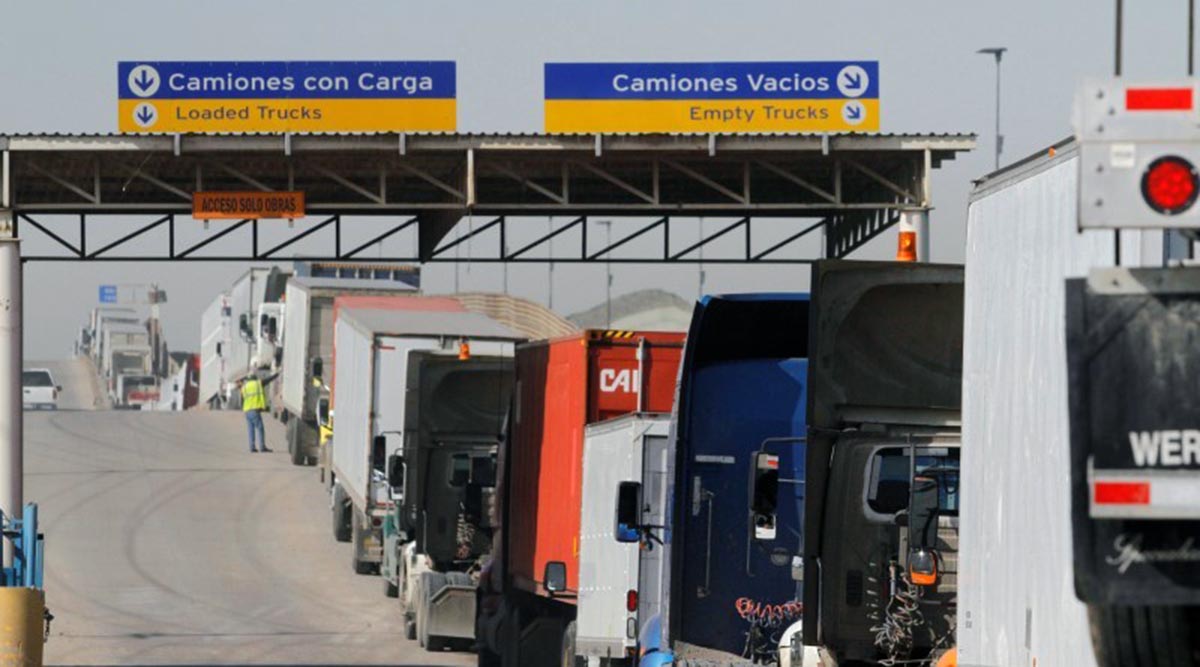Mexico Open to ‘Rebalancing’ Trade Amid US NAFTA Overhaul

Mexico would accept some “rebalancing” of its trade surplus with the United States as part of a revamped North American Free Trade Agreement, as long as that doesn’t lead to tariffs or other restrictions, said Mexican Economy Minister Ildefonso Guajardo.
“We are willing to consider any rebalancing, as long as it’s through trade expansion, not through trade restriction,” Guajardo said June 6 in an interview with Bloomberg News in Washington, adding that his government opposes tariffs or quotas on Mexican goods or services. “As long as it’s about how can we buy more from each other, we’re willing to work that way.”
RELATED: US seeks to shift trade tides as it starts NAFTA overhaul
As part of NAFTA talks, Mexico would be open to a pledge not to manipulate its currency for competitive purposes, he said. U.S. Trade Representative Robert Lighthizer has indicated to American lawmakers that the Trump administration is interested in adding a currency clause to the agreement as a model for other trade deals.
The Trump administration wants to prevent trade partners from artificially depressing their currencies, which would give them advantages over U.S. exporters, Guajardo said. “Since we don’t use any type of currency manipulation schemes — we have a floating exchange market — we are very glad to consider any type of process that would stabilize the Mexican peso.”
Formal Talks
The U.S., Mexico and Canada are preparing to renegotiate NAFTA, a 23-year-old accord that governs more than $1.2 trillion in annual trade on the continent. Formal talks are expected to begin as early as Aug. 16, after the U.S. consults with lawmakers.
RELATED: Uncertainty clouds NAFTA changes for Mexico factories
The Trump administration has indicated it wants to reduce America’s $63 billion trade deficit with Mexico, the fourth biggest U.S. trade shortfall with any nation.
But Guajardo said it makes more sense for the United States to try to reduce its deficits with the world, rather than individual countries. The United States should “team up” with its neighbors Mexico and Canada to improve the region’s competitiveness, which in turn will reduce America’s global trade gap, he said.
He suggested Mexico would be interested in regaining some of the production capacity he believes was lost under NAFTA. Mexico wants to produce more high-value products such as electronics and flat-screen TVs under a revised pact, he said.
Incentives ‘Aligned’
The economy minister said Mexico would be willing to tighten so-called rules of origin, which dictate how much of a product must be made in North America. “It would benefit all three countries to have stronger rules of origin, but you have to be careful not to overdo that,” he said. “If you do that too fast, too soon, you may be shooting yourself in the foot.”
Guajardo said “incentives are aligned” in the United States and Mexico to reach a deal by the end of the year or early 2018. Mexican officials have called for NAFTA talks to conclude by the end of this year to prevent them from being muddied by election posturing ahead of the country’s presidential vote in July 2018.
U.S. Commerce Secretary Wilbur Ross said last week the United States would like to conclude talks by early next year, because of the Mexican vote and U.S. midterm Congressional elections in November 2018.
Guajardo said a deal would have to be approved by Mexico’s Senate. If the three countries reach agreement early next year, the Mexican government could present the pact to senators for approval in April, he said. “If that scenario doesn’t come true, definitely we will not be in a position to do the process, and we’ll have to go through the Mexican election.”
Populist Candidate
The rise of populist candidate Andres Manuel Lopez Obrador in opinion polls has concerned some investors and led Mexican officials to argue that he’d be more antagonistic to the United States if NAFTA negotiations were drawn out and he clinched the election.
In an interview with Bloomberg News in March, Obrador said he’d be more forceful than the current government in battling Trump on issues such as immigrant rights, adding that he was eager to handle NAFTA talks himself.

